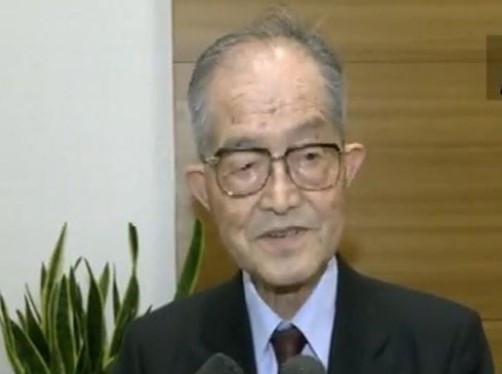“Bahut accha hoga…” Japanese linguist urges PM Modi to organise next ‘Vishwa Hindi Sammelan’ in Japan
Hiroshima [Japan], May 20 (ANI): Prime Minister Narendra Modi on Saturday met with Padma Shri awarded Japanese author who is also a skilled Hindi and Punjabi linguist.

Mizokami, whose oratory in Hindi and Punjabi have left many awe-struck said that he requested Prime Minister Narendra Modi to organise the next ‘Vishwa Hindi Sammelan’ in Japan. “Maine poocha Agla Vishwa Hindi Sammelan Japan Mein Ho Toh Bahut Achha Hoga, Aapki (PM Modi) Sahyata Chahiye…. (I asked that it would be great if the next Vishwa Hindi Sammela is held in Japan, for this your help is needed….),” Mizokame said recounting his interaction with PM Modi in the sidelines of the G7 Summit in the historic city of Hiroshima.
“Unhone Isme Haa Kar Dia……(He agreed to this),” he added.
Mizokami’s Hindi and Punjabi speaking skills left many people mesmerised.
Earlier in the day, Prime Minister Narendra Modi met, Mizokami and accepted a book ‘Jawalamukhi’ from him as a gift.
On being asked how his interest in Hindi developed, Mizokami recounted his childhood lived in the Japanese city of Kobe.
He said, “Mera Janm Kobe Mein Hua Tha, Un Dino Kobe Mein Sabse Adhik Bhartiya Rehte the….. unlogo ne Mujhe Prabhavit Kia. Jigyasa thi….Arrey Kitni Sunder Saree…..Unki Bhasha Seekhni Chaiye….. (I was born in the Japanese city of Kobe, which back then was largely dominated by the Indian population…I was influenced by them…they had such beautiful sarees…I was curious to learn about their language…).”
He also added that he admired former PM Jawaharlal Nehru. “In those times, he Nehruji also had a major influence around the world….he, as one of the founders of the ‘Non-Aligned Movement’ was an inspiration for youngsters like us who wanted peace and stability. So, why not learn the language of such a leader,” he said.
A magazine titled ‘Jwalamukhi’, which was gifted by Mizokami to PM Modi, consists annually the poems, essays, and stories contributed exclusively by Japanese nationals. The book was printed in India using a modest grant from the Ministry of Culture, Government of India.




